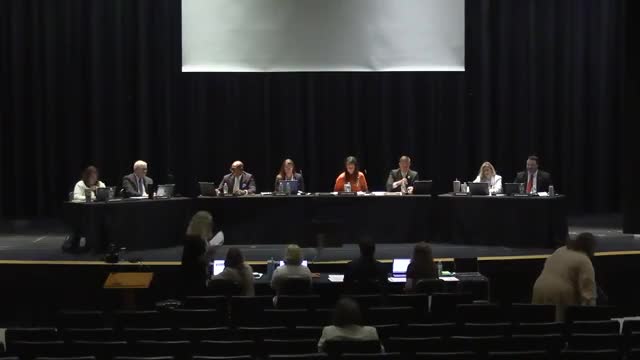Superintendent warns state funding formula changes shifted money toward charters; board briefed on review
Get AI-powered insights, summaries, and transcripts
Subscribe
Summary
District staff walked trustees through the State Aid to Classrooms formula and recent House 1/House 2 changes, saying the formula’s structure produced a large funding shift to charter schools despite only small student enrollment changes.
Lexington County School District One trustees heard a detailed presentation on the State Aid to Classrooms funding formula on Oct. 21, during which district staff said changes under the recent legislative cycles produced a disproportionate allocation of new state dollars to public charter schools compared with traditional districts.
The presentation traced new state allocations over three years and explained that initial House 1 calculations would have directed a much larger share of new funding to charter schools; state negotiators later modified the formula to produce House 2, which narrowed—though did not eliminate—the discrepancy. The presenter told the board that, while charter student counts rose by less than 2 percentage points over three years, the distribution of new funds to charter schools increased by more than 20% under the original formula mechanics.
Why it matters: district leaders said the funding formula affects local budgeting decisions, including the district’s ability to fund teacher pay increases without seeking local tax increases. The presenter said that in some cases districts with rising enrollment have nonetheless seen declines in state allocations because the formula factors an index of taxpaying ability.
District staff reviewed the statutory provenance of the program, noting the State Aid to Classrooms program was enacted in the fiscal year 2023 budget and is currently implemented via Proviso 1.3 of the Appropriations Act. Staff described the four priorities recommended by the State Association of School Administrators (SCASA)—reliability, predictability, transparency and sustainability—and said SCASA asked for less reliance on an index of taxpaying ability when distributing new funds.
Board members asked whether the review would include a formal task force and whether charter schools are held to the same state testing standards (answer: public charters are held to state standards; private schools are not). Staff confirmed the South Carolina Revenue and Fiscal Affairs office was directed by the proviso to review the formula and that the state had distributed a survey seeking feedback from school districts and charter school associations.
The board did not take a final action on the formula at the meeting. Staff encouraged trustees to participate in upcoming legislative advocacy meetings and to weigh in during the state review process.
